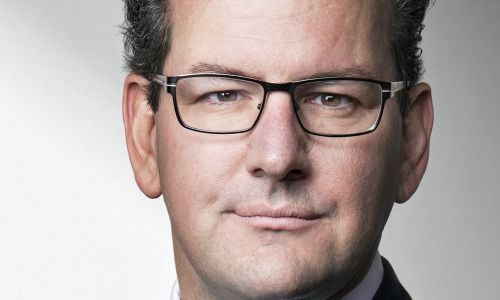Michael Welti: «Global Citizens Offer One-in-a-Millenium Chance»
A new customer profile is growing: the global citizen. This provides the bank adviser with a golden chance, namely to become a client adviser rahter than simply a representative of a financial institution, writes Michael Welti.
finews.first is a forum for renowned authors specialized on economic and financial topics. The texts are published in both German and English. The publishers of finews.com are responsible for the selection.
It’s not only the bank that has changed, but the bank customer as well. The age of customers regularly visiting bank branches in person is almost over. In traditional retail business, the big banks are trying to train customers to use e-banking solutions and apps on their smartphones. They have huge advertising budgets to try and make the digital services appeal to their customers.
Large banks are facing pressure from technology giants such as Facebook and Google. They have much more detailed knowledge about their customers than the banks could have, since young people in particular are very liberal when it comes to sharing their data. This can lead to the customer being approached more quickly and more precisely. Classic sales channels thereby lose their efficacy.
While the advantages and massive cost reductions technology can offer large banks is clear, many customers are looking for advice tailored to them. Today, this personalised consulting usually only benefits the richest clients (Ultra High-Net-Worth Individuals, UHNWI). Depending on the bank, this service usually starts at a wealth of 5 million Swiss Francs.
«They identify themselves by belonging to an up-and-coming world community»
The reason customers no longer regularly come to bank branches is clear: The customers themselves are changing. They are no longer based locally, but have become global citizens. They identify themselves by belonging to an up-and-coming world community and, by their actions, contribute to building the values and practices of that community. This growing global identity is largely made possible by the powers of modern information, communication and traffic technology. Global citizens have the ability to come into contact with the rest of the world – via the Internet, via participation in the global economy, or through the ease with which they can travel and visit other parts of the globe.
The result of life in a globalised world means that these global citizens buy or rent their real estate all over the world. Their children will of course go to boarding school everywhere and medical care must also be provided abroad. Global citizens often invest a high proportion of their assets in illiquid assets such as art, yachts and real estate. Business activities or mergers transcend national borders, leading to complex tax situations.
«They have needs which cannot be replaced by e-banking and smartphone apps»
The behaviour of these global citizens and the disruption of society require completely different and new service models from the banks. Customers today want to be in constant contact with their advisor. Either via phone or social media. Constant connectivity and availability are desired and necessary. This doesn't mean the customer doesn’t want to sit with their advisor in person: In the case of a wealthy customer, a personal conversation cannot be replaced by technology.
A client who is still active in their professional life sees themself today as an entrepreneur and global citizen. They have needs which cannot be replaced by e-banking and smartphone apps. These can only provide support. His needs include complex family structures and company foundations that have to be taken into account in asset planning.
«This is the only way they can understand the customer's needs and work out solutions»
Questions arise regarding succession in family businesses or the change of generations in general. But it is also about the growth of companies at an international level, cross-border mergers or relocating abroad.
The greatest challenge facing the financial world in the new millenium is the global way of living and the global community based on sustainable values. The advisor has also taken on the role of a global banker. This is the only way they can understand the customer's needs and work out solutions for which internal and external specialists are by their side. Visiting the client on site, integrating them into corporate and family governance solutions and sometimes simply supporting them with friendly advice are just some of the tasks that bankers have to accomplish today. The bank advisor is again the client's advisor, and not just the representative of a financial institution.
Michael Welti is Head Zurich and Managing Director – Wealth Management at Reyl & Cie.
Previous contributions: Rudi Bogni, Peter Kurer, Oliver Berger, Rolf Banz, Dieter Ruloff, Werner Vogt, Walter Wittmann, Alfred Mettler, Peter Hody, Robert Holzach, Craig Murray, David Zollinger, Arthur Bolliger, Beat Kappeler, Chris Rowe, Stefan Gerlach, Marc Lussy, Nuno Fernandes, Richard Egger, Maurice Pedergnana, Marco Bargel, Steve Hanke, Andreas Britt, Urs Schoettli, Ursula Finsterwald, Stefan Kreuzkamp, Oliver Bussmann, Michael Benz, Peter Hody, Albert Steck, Andreas Britt, Martin Dahinden, Thomas Fedier, Alfred Mettler, Brigitte Strebel, Peter Hody, Mirjam Staub-Bisang, Nicolas Roth, Thorsten Polleit, Kim Iskyan, Stephen Dover, Denise Kenyon-Rouvinez, Christian Dreyer, Kinan Khadam-Al-Jame, Robert Hemmi, Anton Affentranger, Yves Mirabaud, Katharina Bart, Frédéric Papp, Hans-Martin Kraus, Gerard Guerdat, Didier Saint-Georges, Mario Bassi, Stephen Thariyan, Dan Steinbock, Rino Borini, Bert Flossbach, Michael Hasenstab, Guido Schilling, Werner E. Rutsch, Dorte Bech Vizard, Adriano B. Lucatelli, Katharina Bart, Maya Bhandari, Jean Tirole, Hans Jakob Roth, Marco Martinelli, Beat Wittmann, Thomas Sutter, Tom King, Werner Peyer, Thomas Kupfer, Peter Kurer, Arturo Bris, Frederic Papp, Claudia Kraaz, James Syme, Peter Hody, Claude Baumann, Dennis Larsen, Bernd Kramer, Ralph Ebert, Marionna Wegenstein, Armin Jans, Nicolas Roth, Hans Ulrich Jost, Patrick Hunger, Fabrizio Quirighetti, Claire Shaw, Michael Welti, Peter Fanconi, Alex Wolf, Dan Steinbock, Patrick Scheurle, Claude Baumann, Sandro Occhilupo, Claudia Kraaz, Will Ballard, Michael Bornhäusser, Nicholas Yeo, Claude-Alain Margelisch, Jean-François Hirschel, Jens Pongratz. and Samuel Gerber and Philipp Weckherlin, Michel Longhini and Anne Richards.



























